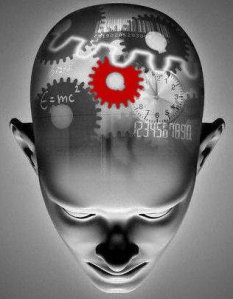Carolyn Bivens,the LPGA Tour Commissioner recently stated in an interview, “I’d love it if players Twittered during the middle of a round,” and “encourages” players to use hand held devices to post content on social-media Web sites such as Twitter or Facebook during tournaments, even if it runs counter to golf etiquette. The LPGA is not the first professional women’s sport to enter the world of social media. The WPS has dabbled with tweets during games, and many female athletes, leagues, and coaches have Twitter pages (To see them all visit the Twitter Lounge at Women Talk Sports).  While the effectiveness of Twitter in marketing and promoting women’s sport is still rages, I’d like to offer a sport psychology perspective on tweeting during competition.
While the effectiveness of Twitter in marketing and promoting women’s sport is still rages, I’d like to offer a sport psychology perspective on tweeting during competition.
Psychological skills in sport include (but are not limited to) managing energy and anxiety, self-talk, visualization, goal setting, and attentional control. Perhaps tweeting between holes, during halftime or between periods, or if a player is on the bench, might be a good idea but even that is stretching it. If an athlete is tweeting (to interact with fans, give fans what they want, make athletes accessible, make the sport more appealing…or for whatever purpose it is supposed to accomplish), even on the bench, she is not paying attention to relevant information in the game that she might need when called upon. I can see it now…
 Coach: “Why did you miss that defensive coverage? She has been doing that same move all night long? I sent you in there for your defense, you’re our stopper!!!”
Coach: “Why did you miss that defensive coverage? She has been doing that same move all night long? I sent you in there for your defense, you’re our stopper!!!”
Athlete:“Sorry Coach, I’ve been busy tweeting while on the bench so that more fans will come watch our games and the league is ‘encouraging’ us do it”
Coach: “No one will come if we are losing games because players off the bench have no clue what is going on!…give me that IPhone!”
In golf, a player must maintain mental focus the entire round. One errant shot, wrong club, mis-read can be the difference between making the cut and making travel plans to the next tournament. Some athletes do have the ability to refocus attention quickly, but some do not. Why take the chance?
 Coach: “What happened on the back nine? All you had to do was to make par all the way in to make the cut!”
Coach: “What happened on the back nine? All you had to do was to make par all the way in to make the cut!”
Athlete: “On hole 14 I stopped to tweet how I was doing to my tweeples, and then I was rushed for my shot and had to go through my ritual quickly. I lost focus and before I knew it, my second shot was in the water which made me so mad because I knew it was because I had lost focus, which made me more unfocused and angry at myself and it spiraled from there.”
Athletes that are mentally tough (the ability to perform on command regardless of the situation), have developed psychological skills which include highly detailed and systematic rituals that are practiced. These rituals increase the likelihood of optimal performance. Will competitive rituals now include tweeting?
Athlete:(golfer through pre-shot routine) Assess yardage, wind direction and lie. Pick club, take practice swings, repeat cue words, address ball, take a deep breath, see self hitting ball perfectly, see ball flying on right trajectory, exhale, relax shoulders, loosen grip on the club, hit it. Pick up phone to tweet result. Repeat.
Tweeting during competition has nothing to do with optimal performance. Energy and attention focus are limited quantities. The more energy and focus that goes into tweets, the less the athlete has for performing well. If I saw an opponent tweeting during a competition, I would be elated! The excitement around Twitter during games seems to driven by “what the fans want” rather than “what is best for the athletes”. After all, professional athletes are there to compete and perform the best they can on any given day–anything that distracts them from doing so is a bad idea.
 Mental toughness is a psychological skill that can be taught and developed, and mentally dealing with and tolerating pain is an essential element to successful and consistent performance. On the men’s side snowboarder Shaun White, who similarly won a gold medal in the men’s halfpipe would also exemplify mental toughness.
Mental toughness is a psychological skill that can be taught and developed, and mentally dealing with and tolerating pain is an essential element to successful and consistent performance. On the men’s side snowboarder Shaun White, who similarly won a gold medal in the men’s halfpipe would also exemplify mental toughness.



